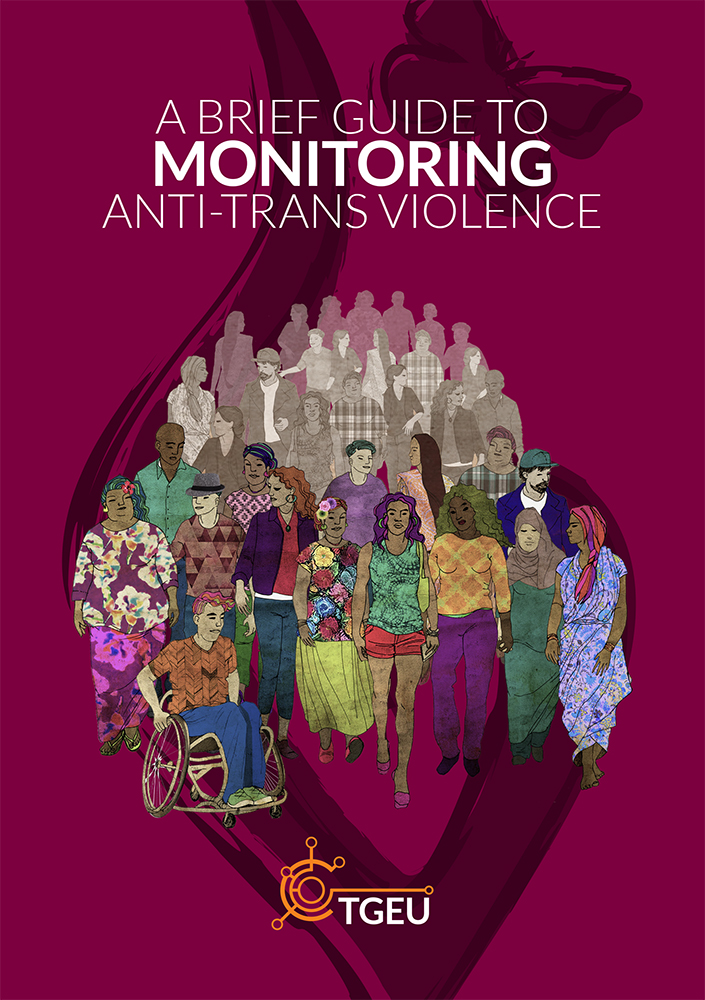TGEU publishes practical guide to monitoring anti-trans violence

On this International Trans Day of Visibility (TDoV), TGEU, in collaboration with partner organisations, is publishing the booklet “A brief guide to monitoring anti-trans violence“.
Key message
‘A Brief Guide to Monitoring Anti-Trans Violence’ is an easy-to-use guide on the basic concepts of monitoring anti-trans violence and provides tips for individual and community wellbeing. In the guide, activists from various countries share their experiences about campaigning as a force of community building. You will also find a call to international organisations and funders to support the trans movement in monitoring initiatives, as well as taking into account the well-being and livelihood of activists working on anti-trans violence worldwide.
Why this report?
Given the present challenging circumstances and growing concerns around COVID-19, we are concerned about the human rights of trans and gender-diverse communities. This guide serves as a tool to support organisations and activists in reporting, collecting, and analysing anti-trans violence in their contexts and engaging with regional and global monitoring mechanisms.
What can I find in it?
This booklet primarily focuses on case studies of trans groups, LGBTI and human rights organisations working with trans people. It features experiences and best practices from trans and gender diverse organisations in Brazil, Hungary, Kyrgyzstan, Serbia, Turkey, and Ukraine. The easy-to-use publication provides basic concepts of monitoring based on TGEU and its partners’ experiences in the field, accumulated over the past ten years. It draws on our knowledge and insights from the Trans Murder Monitoring (TMM) research project, which has been systematically monitoring, collecting, and analysing reports of murders of trans and gender diverse people worldwide since 2009.
Main findings
The guide highlights the overwhelming obstacles faced by frontline activists during the monitoring and documentation process of anti-trans violence, such as a lack of or insufficient human and financial resources, inability to offer services that could mitigate the effects of re-traumatisation of the survivors, and the emotional distress experienced by those collecting violence-related data. Trans groups also face hostility from anti-trans groups and exclusion from mainstream LGBTI groups.
Support our work
We work across Europe and Central Asia to advance trans rights, build strong communities, and drive change through research, advocacy, and community-building.
Your donation helps us continue this vital work — defending trans lives, amplifying trans voices, and advocating for justice every day.